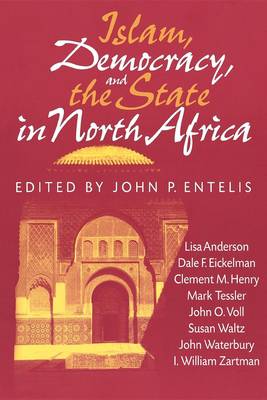
- Afhalen na 1 uur in een winkel met voorraad
- Gratis thuislevering in België vanaf € 30
- Ruim aanbod met 7 miljoen producten
- Afhalen na 1 uur in een winkel met voorraad
- Gratis thuislevering in België vanaf € 30
- Ruim aanbod met 7 miljoen producten
Islam, Democracy, and the State in North Africa
Omschrijving
"Rarely is a collection of essays as coherent and of such uniformly high quality as is this one. This book makes a major contribution to our efforts to understand, and so competently interact with, the forces of political, economic, and social change in states where Islamic ideals form a vibrant component of the culture." --American Historical Review
"Fielding a veteran team of American Maghribi specialists, this book discusses Islam and politics, human rights, aspects of political economy, and the international dimension of prospects for democratization in Islamic North African states. . . . All chapters advance useful arguments based on solid research." --Foreign Affairs
In the late 1980s, misguided economic policies, bureaucratic mismanagement, political corruption, and cultural alienation combined to create a popular demand for change in Algeria, Morocco, and Tunisia. It seemed for a time that a new and more open politics would transform the region. Instead, authoritarian states mobilized to repress the populist opposition led by politicized Islamist movements. Analyzing developments over the last two decades from the perspectives of political culture and political economy, leading American scholars provide insights into the region's continuing political crisis.
Specificaties
Betrokkenen
- Uitgeverij:
Inhoud
- Aantal bladzijden:
- 256
- Taal:
- Engels
- Reeks:
Eigenschappen
- Productcode (EAN):
- 9780253211316
- Verschijningsdatum:
- 22/12/1997
- Uitvoering:
- Paperback
- Formaat:
- Trade paperback (VS)
- Afmetingen:
- 156 mm x 234 mm
- Gewicht:
- 367 g

Alleen bij Standaard Boekhandel
Beoordelingen
We publiceren alleen reviews die voldoen aan de voorwaarden voor reviews. Bekijk onze voorwaarden voor reviews.






